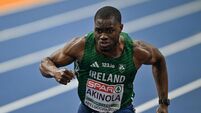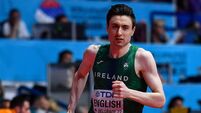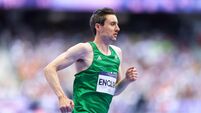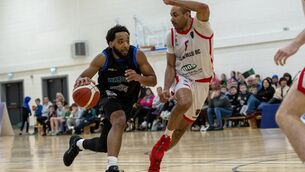Nick Griggs: A swift rise from obscurity to the real deal
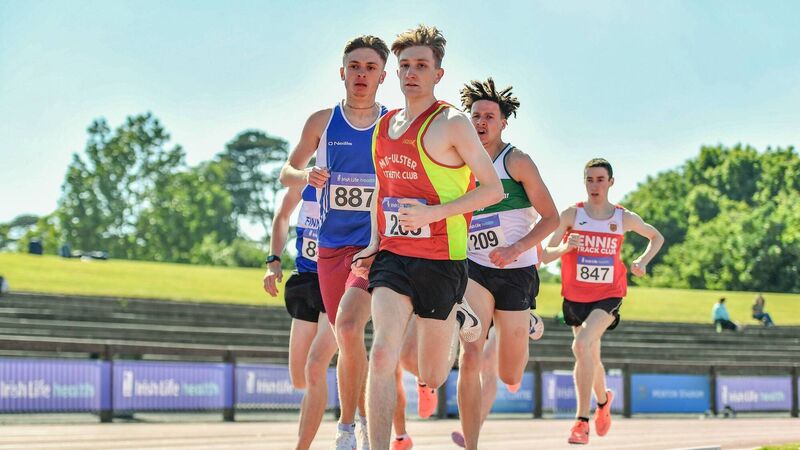
Nick Griggs leads the field in the Junior Men’s 1500m last June in the Irish Life Health Junior Championships & U23 Specific Events at Morton Stadium, Santry. Sunday in Abbotstown, he faces the biggest test of his fledgling career, taking on a field of serious quality in the U-20 European Cross Country Championships. Picture: Sam Barnes/Sportsfile
At first they thought he was lying. It just didn’t make any sense. When 16-year-old Nick Griggs entered a 5000m race in Belfast back in May, looking to line up against some of the best Irish seniors, event organiser Seamus McCann was dubious, to say the least.




